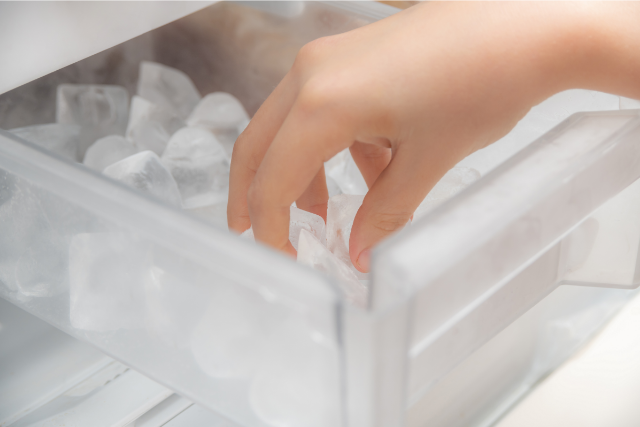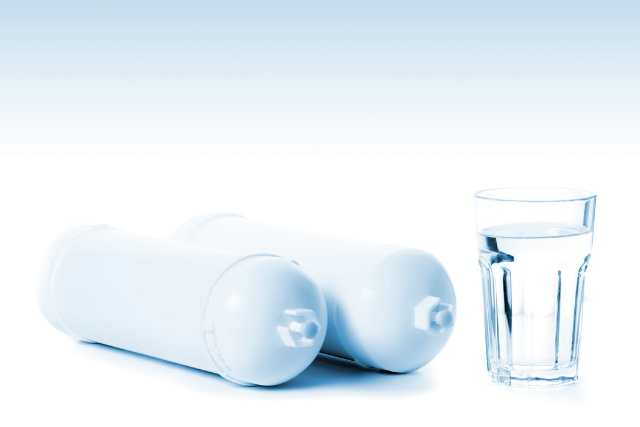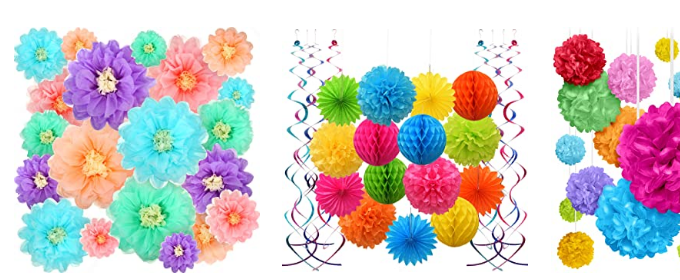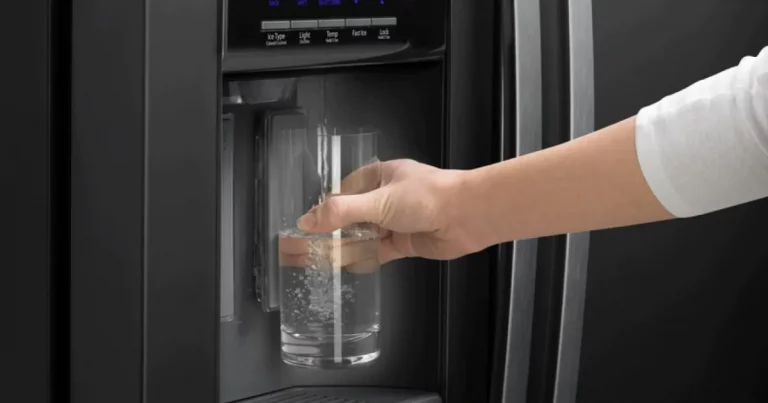How To Convert Hard Water To Soft Water At Home For Bathing
There is nothing that feels good as having a warm bath after a long day or after taking sleeping.
Bathing makes your body fresh and relaxed. Scientifically, bathing is said to improve general body health by activating the brain, triggering the nervous system, and enhancing body immunity.
Bathing not only cleans your body but also helps you avoid irritation, inflammation, and sores caused by the accumulation of dead skin cells.
Regardless, bathing with hard water may not achieve all the said benefits because hard water contains a high concentration of minerals that can alter your skin PH levels making your skin dry and irritated.
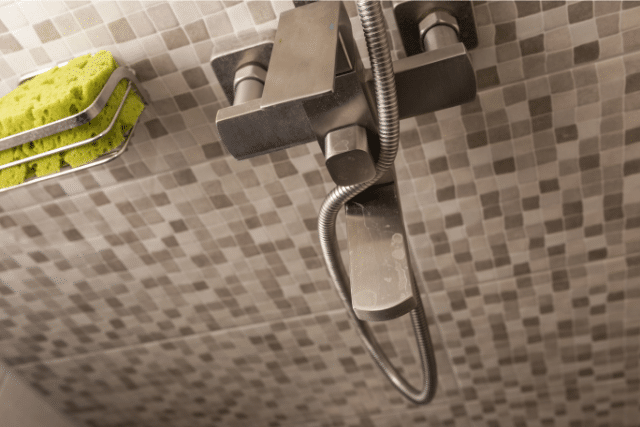
What Is Hard Water
Perhaps you are wondering what is hard water and soft water. Clean water by nature is crystal clear, however, it contains minerals and chemicals.
Water can be hard or soft depending on the concentration of certain minerals found in it.
Hard water contains a high concentration of calcium minerals, magnesium minerals, and sometimes manganese that cause water hardness.
Soft water on the other hand tends to have higher concentrations of salt and low levels of calcium and magnesium. Calcium and magnesium minerals are good for improving bone density in animals when taken.
When used in bathing, hard water has adverse effects compared to soft water.
Since hard water contains a high amount of minerals, taking bath with it can make your skin dry and itchy.
Furthermore, it makes your nails and hair dull, and deposits of minerals in your head can contribute to getting dandruff.
How To Tell If Your Water is Hard Water or Soft Water
Naturally, it is easier to know if the water you are supplied with is hard because soft water has no visual effects.
For the reason that hard water contains a high mineral content, hard water appears to be milky and leaves typical revealing signs such as stains, spots on utensils, soap scum, even after washing and drying, and even stains on bathtubs, shower walls, and doors.
Additionally, hard water has a tendency to leave your skin and hair dry and itchy.
In contrast, soft water being low in minerals is quite clear. It does not leave any visual signs nor does it have any effect on the skin or appliances
Hard water can have temporary or permanent water hardness.
Temporary hardness is caused by the presence of dissolved calcium bicarbonate and magnesium bicarbonate.
Temporary hard water can be easily converted to soft water by either boiling, adding soda, or filtering.
The permanent hardness of water is caused by the presence of calcium chloride/calcium sulfate or magnesium chloride/magnesium sulfate.
Nonetheless, reducing the hardness of the water in permanent hard water requires more advanced ways like using commercial water softeners or ion exchange devices.
To be certain of the hardness of the water you are using, conduct a water hardness test.
Doing a water hardness test will give you the real measure of how hard is your water.
This in turn will enable you to choose an appropriate method of softening your water.
Why Is Hard Water Bad?
Usually, hard water when taken is good for the body because it contains many minerals. However, it is not beneficial for other home purposes like cleaning, and bathing.
For instance, calcium, magnesium, and zinc are found in hard water. They are good for the formation of bones and brain development.
While hard water contains many beneficial minerals, its use within homes and industries can be more damaging than beneficial.
Hard water when used for bathing leaves the skin dry and itchy.
This is because of scum-like residue that sticks to the skin causing irritation.
Moreover, the high mineral content in hard water alters the skin PH levels making it vulnerable to infections.
When you use hard water to wash your hair, your hair will become dry and rough.
This is because of the excess minerals found in the hard water which forms a sticky-like substance that remains in your hair.
Effects of Hard Water
Hard water leaves scum patches in bathtubs, bath tiles, bath fittings, and glasses.
If not properly washed the calcium patches can form ugly layers on the bathroom fittings.
Also when used to clean utensils, cloud-like watermarks are left on the utensils which with time permanently discolors and stains them.
When hard water is used in laundry, the detergent produces scum instead of lather which in turn stains clothes and makes them scratchy.
Besides, hard water is known for corroding plumbing equipment and home appliances by creating lime scales and leaving deposits which lead to clogging and rusting of the appliances and plumbing equipment.
Soft water is preferred for the purposes of cleaning and other uses in homes and industries compared to hard water.
How To Convert Hard Water To Soft Water At Home For Bathing Naturally
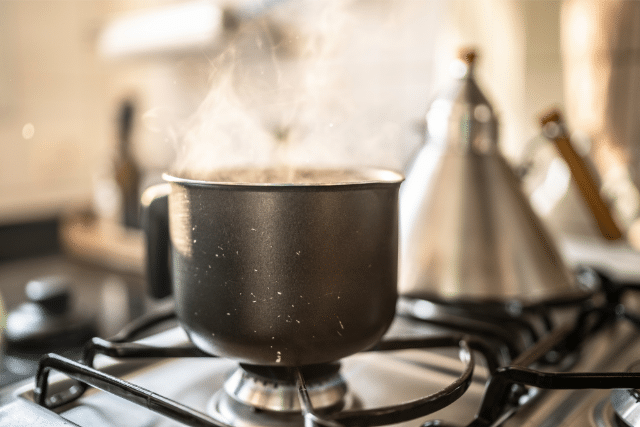
Once you have determined how hard your water is, it is easier to choose what method to use to convert your hard water to soft water for bathing and other home uses.
How To Convert Hard Water To Soft water By Boiling
Temporary hard water can be softened by boiling. Boiling gets rid of calcium which causes hardness in water.
This method is only suitable when you are converting a little amount of hard water to soft water.
It will be tiresome to boil water each time you want to bathe or you need water to do laundry.
Another way of softening temporary hard water is by adding sodium bicarbonate or lime or soda. Sodium bicarbonate will help alter the pH level of the hard water to a more natural state.
Likewise, the carbonate ions will react with calcium and magnesium ions dissolving them making the water soft.
Prolonged use of sodium bicarbonate can lead to limescale buildup, which can result in clogged pipes.
Adding soda as a method of softening water is one of the cheapest ways of converting hard water to soft water. However, it is tedious because you have to add soda every time to your water before you use it.
Moreover, you have to be careful about the quantity of the soda to avoid saturating the water with sodium bicarbonate.
How To Convert Hard Water To Soft water With Softener
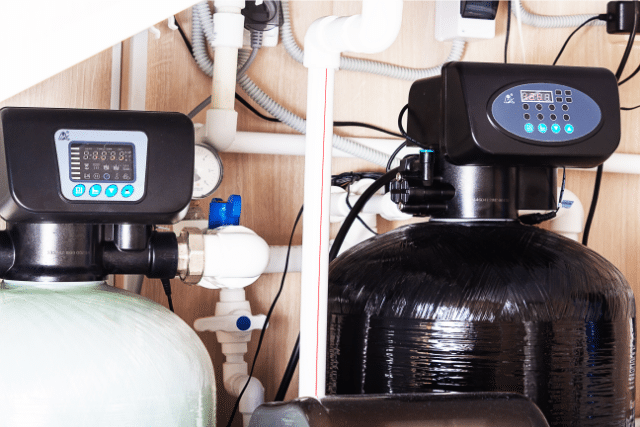
Use a faucet filter with a water softener in your bathroom to convert hard water to soft water for bathing purposes.
A faucet filter installed with a water softener will not only clean contaminants in your tap water but also soften your water.
A faucet filter is relatively cheaper compared to installing a water softening system.
Install a water softening system in your home to help you convert hard water to soft water in your home.
A water softening system moves hard water through a sticky, insoluble material that is covered with positively charged sodium ions.
The positively charged sodium ions react with calcium and magnesium ions dissolving salts of calcium and magnesium with sodium.
Some water softening systems use potassium instead of sodium while others use magnets, citric acid, or other means to reduce calcium and magnesium concentrations in the water.
Use an ion exchange device to soften your hard water. Ion exchange devices remove the hardness ions, calcium, and magnesium, and substitute them with non-hardness ions.
How To Convert Hard Water To Soft water Using Reverse Osmosis
Reverse osmosis is the most popular method of filtering water to remove any sediment which is responsible for water hardening.
Although it is not primarily for softening water, reverse osmosis reduces water hardness by removing mineral deposits that may contain large volumes of calcium and magnesium carbonate in water reservoirs.
This method is suitable for large-scale water filtration and can be used with faucet filters fitted with water softeners for the best result in bathrooms.
Benefits Of Using Soft Water
The biggest problem with hard water is using it for cleaning, laundry, and bathing. Aside from the risk of damaging your skin and hair, hard water corrodes pipes and ruins home appliances like washing machines, dishwashers, bathroom fittings, and utensils.
Soft water is preferred for use in homes and industries because of the following benefits;
It is clear, therefore it does not leave stains and deposits on things when used
Soft water does not corrode pipes or appliances, therefore, lengthening the lifespan of the appliance.
It is safe for washing your body because it does not cause dryness and skin outbreaks
Soft water makes your skin and hair soft and does not alter your skin makeup.
It leaves your clothes and surfaces clean without patches and spots
Soft water saves you money since you do not use more water and detergents than required when cleaning.
Final verdict
Taking bath has immense benefits to your body, both mentally and physically. Bathing has a unique way of refreshing your body and relieving mental pressure.
Scientifically, bathing is said to help your body in decreasing stress hormones and balancing serotonin levels, which in turn elevates your moods and emotions.
This way you feel relaxed and happy after taking a bath.
Bathing can either be cold or hot, nevertheless, both ways have their unique ways of soothing the body.
Regardless using hard water when bathing may not give you the refreshing benefits that you want.
This is mainly because, the high measure of minerals contained in hard water can make your skin itchy and dry, and furthermore you will have patches of white spots in your skin.
To obtain the best results after bathing it is suggested that you use soft water.
Soft water contains a low concentration of minerals, particularly calcium and magnesium which cause water hardness.
Soft water can make your skin and hair clean, spotless, and soft, moreover, you will use less detergent when cleaning compared to when using hard water.
While hard water benefits are significant, the high concentration of minerals may not be good for your skin and hair, even your home appliances.
So, if you are supplied with hard water, it is beneficial to convert it to soft water for bathing purposes and general cleaning purposes.
FAQ
What is hard water?
Hard water is water with a high concentration of minerals especially calcium and magnesium ions.
Hard water can be easily identified because when it is used it leaves visual signs such as spots, stains on utensils, soap scum, even after washing and drying, and stains on bathtubs, shower walls, and doors.
What is the difference between hard water and soft water?
Hard water contains high levels of calcium and magnesium ions, while soft water has higher concentrations of salt and low levels of calcium and magnesium ions
Is hard water good for bathing?
No, hard water is not good for bathing because of the high mineral content, that leaves your skin dry after bathing.
Why is soft water good for bathing?
Soft water makes your skin soft and does not alter the PH level of your skin, neither does it leave mineral deposits on your skin that may cause irritation or clogging of your pores.
What are the benefits of hard water?
Hard water is good for drinking because it contains a high level of minerals that are good for the body.
How do I convert hard water to soft water?
You can convert hard water to soft water by boiling or adding soda or using water softeners.
What are the benefits of soft water?
The low concentration of minerals in soft water does not affect the pH balance of your skin, leading to a reduction in dryness and skin outbreaks making your skin strong to create a barrier against harmful bacteria and infections.
Soft water does not damage appliances like hard water, because of the low concentration of minerals. This extends the lifespan of your pipes and home appliances.
Soft water is good for your hair and skin, and home use.
Can I soften hard water?
Yes, you can soften hard water. First conduct a water hardness test to ascertain the hardness of your water.
Select the most appropriate method of softening of hard water mentioned in this article.
There are several ways of converting hard water to soft water which include boiling adding soda bicarbonate, or using commercial water softeners.
What are the disadvantages of hard water?
You will require more water to clean yourself or your utensils when using hard water. This is because of the mineral deposits that form spots.
This in return will translate to additional water bills compared to when using soft water.
When you use hard water to clean, your soap will not lather easily, therefore, requiring more detergents to clean compared to soft water.
When used to bath hard water can make your skin dry and itchy.
Finally, hard water reduces the lifespan of your plumbing equipment and many home appliances because of its corrosive nature due to the presence of many minerals.
What are the disadvantages of soft water?
Unlike hard water which offers more health benefits when taken due to its high concentration of minerals, soft water offers few health benefits because it contains low mineral concentration.

